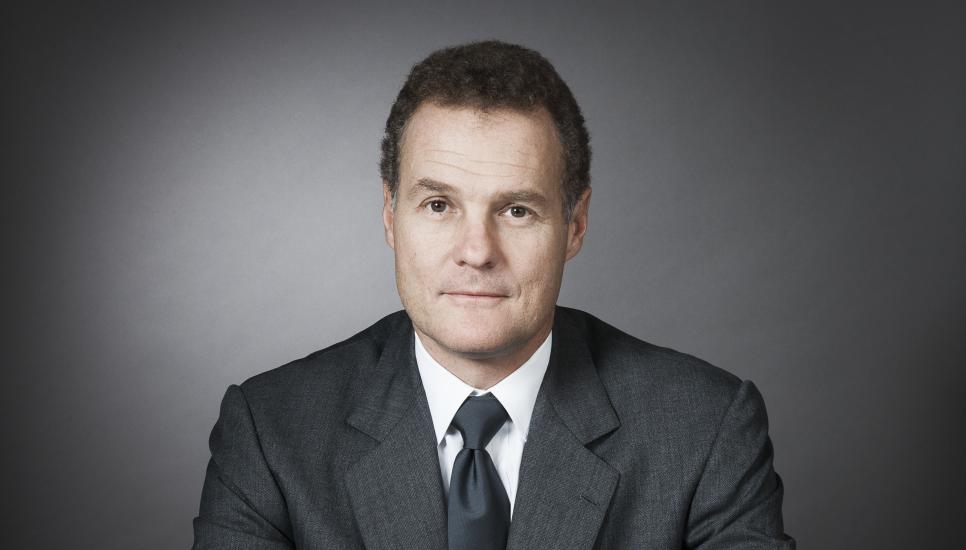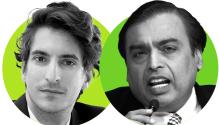FB Roundup: Daily Mail and General Trust, Heineken, LVMH

Rothermere wins bid to take back Daily Mail
The $1.1 billion publisher of Britain’s bestselling newspaper is back in Rothermere family hands after 90 years as a publicly listed company.
However, the slimmed down Daily Mail and General Trust (DMGT) faces a cost-cutting editorial management shake-up, amid ailing publishing sales and advertising.
Fourth-generation principal Jonathan Harmsworth (pictured), 54, is the 4th Viscount Rothermere, chairman of the DMGT and the holder of a 36% stake in the trust. Harmsworth won his five-month battle to take the publisher private last week after the owners of 57% of the shares opted for their recommended offer.
The Rothermeres increased the cash component of their offer to buy out other shareholders to 270 pence per share earlier this month. Reuters reported the offer also included a special dividend of 568 pence a share, 0.5749 Cazoo shares for each DMGT share and final dividend of 17.3 pence. The total return to shareholders will be valued at about 1,278 pence per share.

The pre-conditional sale of DMGT’s insurance business Risk Management Solutions (RMS) and the listing of its used car e-tailer Cazoo had “delivered excellent shareholder returns,” Harmsworth said in November.
“But inevitably DMGT is now a considerably smaller group of businesses, with significantly greater exposure to consumer media. This has led RCL [family investment vehicle Rothermere Continuation Ltd] and the DMGT board to decide to implement a major reorganisation of the group by distributing the value created by the RMS sale and the Cazoo IPO in conjunction with the offer.”
The editor and chief executive of MailOnline, Martin Clarke, stood down this month after 12 years building the popular news website. The Mail on Sunday editor Ted Verity replaced the ousted Geordie Greig at the helm of the Daily Mail to take control of both mastheads, suggesting an eventual cost-saving merger. Former Daily Mail editor Paul Dacre was set to return to DMG Media as editor-in-chief.
 Heineken’s African push with $4.5 billion merger
Heineken’s African push with $4.5 billion merger
Heineken, the fourth-generation Dutch international brewer, will acquire and merge the South African alcoholic beverage companies Distell and Namibia Breweries with Heineken South Africa to form a new $4.5 billion Heineken majority owned company.
The world’s second largest beer and cider maker adds Distell’s wine, brandy and whisky brands to its portfolio plus its reach and presence in the growing southern African alcohol consumer market. The Covid-19 pandemic caused a 6% drop in global alcohol sales in 2020—a 15.8-billion-litre decrease compared to 2019.
Billionaire businesswoman Charlene de Carvalho-Heineken (pictured), 67, inherited her 23% stake in Heineken from her late father, former chief executive Freddy Heineken. Her husband, British financier Michel de Carvalho, 77, sits on Heineken’s supervisory board.
 Dolf van den Brink (pictured), 48, is the Dutch non-family chairman of the executive board and chief executive of Heineken who was handpicked to succeed the brewer’s transformative 22-year veteran predecessor Jean-Francois van Boxmeer, 60, in 2020. Van den Brink, the sector’s youngest chief executive, said the newly formed company was perfectly positioned to capture significant growth opportunities in southern Africa. Consumers would be better served by its multi-category leading brands and a strengthened route-to-market.
Dolf van den Brink (pictured), 48, is the Dutch non-family chairman of the executive board and chief executive of Heineken who was handpicked to succeed the brewer’s transformative 22-year veteran predecessor Jean-Francois van Boxmeer, 60, in 2020. Van den Brink, the sector’s youngest chief executive, said the newly formed company was perfectly positioned to capture significant growth opportunities in southern Africa. Consumers would be better served by its multi-category leading brands and a strengthened route-to-market.
“The businesses share common values derived from their family heritage, long-term perspectives, entrepreneurial spirit, and care for people and planet,” van den Brink said.
“We have successfully built our business in Africa over 100 years. Today’s announcement is a vote of confidence in the long-term prospects of South Africa and Namibia and we commit to being a strong partner for growth and to make a positive impact in the communities in which we operate.”
 LVMH takes Thelios inhouse in share buyout
LVMH takes Thelios inhouse in share buyout
The $50.5 billion luxury goods empire LVMH, controlled by the Arnault family of France, has absorbed a successful eyewear joint-venture into its sprawling portfolio by buying out its partner’s shares.
LVMH’s strengthening of its eyewear division followed the acquisition of the upmarket family-owned Danish eyewear company Lindberg by $8.4 billion rival Kering, owned by the Pinault family, in July.
Revenue in the luxury eyewear segment amounted to $769 million in 2021. Analysts expected the market to grow annually by 6%.
The Moet Hennessy Louis Vuitton conglomerate, better known as LVMH and chaired by billionaire Bernard Arnault (pictured), 72, created Thelios (pictured) with the $384 million high-end Italian eyewear producer and exporter Marcolin in 2017. Thelios designs and makes eyewear for LVMH Maisons including, Loewe, Celine, Berluti, Kenzo, Fenty and Louis Vuitton.

LVMH announced this month the group and Marcolin had jointly decided to embark Thelios on the next stage of its development and become fully integrated within LVMH.
Marcolin and LVMH agreed for LVMH to buy the 49% stake held by Marcolin in Thelios. Separately, Marcolin will buy back the 10% stake LVMH owns in Marcolin, which LVMH acquired when Thelios was founded.
LVMH said the moves represented an opportunity for the group to further strengthen its presence in the eyewear industry, leveraging its Italian savoir-faire, and for Marcolin to pursue future strategic investments.
In 2021, Thelios entered a partnership with Dior, the French fashion house controlled by LVMH, to launch its first independent eyewear brand. Thelios also began a long-term strategic partnership with Givenchy, the French luxury fashion and perfume house also owned by LVMH.






